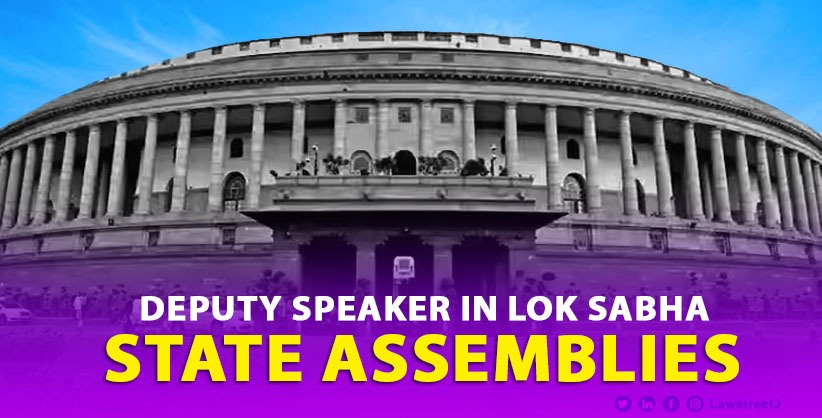NEW DELHI: The Supreme Court on Monday agreed to examine a PIL, raising question on non-fulfilment of post of deputy speaker in Lok Sabha and state assemblies of Rajasthan, Uttar Pradesh, Uttarakhand, Madhya Pradesh, and Jharkhand on the ground that it was against the healthy democratic functioning.
A bench of Chief Justice of India D Y Chandrachud and Justices P S Narasimha and J B Pardiwala, sought assistance from Attorney General R Venkataramani.
The court took into account submissions from senior advocate Vibha Datta Makhija, on behalf of Delhi-based advocate Shariq Ahmed, who filed the PIL, seeking a direction for initiation of the process to fill up the posts.
The plea said, "Non-election of deputy speaker of Lok Sabha and the legislative assemblies goes against the healthy democratic functioning. Though there is no statutory requirement, however, healthy tradition has developed over time that the ruling party elects the Speaker while the deputy speaker post is given to the Opposition."
The plea pointed out the present 17th Lok Sabha was constituted in the month of May, 2019 and Om Birla was chosen as the speaker of the Lok Sabha who assumed the office on June 19, 2019, but no deputy speaker has been elected since then.
Despite the lapse of more than three and half years since the constitution of the present Lok Sabha, the post of deputy speaker was lying vacant in violation of Articles 93 to 96 of the Constitution.
Similarly, the post of Deputy Speaker of the Legislative Assemblies of Rajasthan, Madhya Pradesh, Jharkhand, Uttar Pradesh and Uttarakhand are also vacant though the legislative assemblies in those states have been constituted long back," it contended.
The deputy speaker of the Lok Sabha and the legislative assemblies are not subordinate to the speaker of the Lok Sabha and the legislative assemblies, rather the deputy speaker is responsible to the Lok Sabha and is the second- highest-ranking legislative officer of the Lok Sabha and performs very important functions, it said.
The deputy speakers act as the presiding officer and also assumes the administrative powers in case of leave or in absence caused by death or illness of the Speaker of the Lok Sabha and the Legislative Assemblies respectively. A situation of constitutional void rather than a situation of constitutional crisis may be created if the office of the Speaker of the Lok Sabha and the Speaker of a legislative assembly becomes vacant," the plea said.
"Though no time limit has been mentioned in Articles 93 and 178 of the Constitution of India for election of the deputy speaker of the Lok Sabha and the deputy speaker of the State Legislative Assemblies, however, the expression used is 'as soon as may be'. This expression 'as soon as may be' can by no stretch of imagination be interpreted to mean as late as four years as in the case of the present Lok Sabha (17th Lok Sabha) and more than two years and three years in the case of State Legislative Assemblies like Madhya Pradesh, Rajasthan, Jharkhand etc," the plea added.







